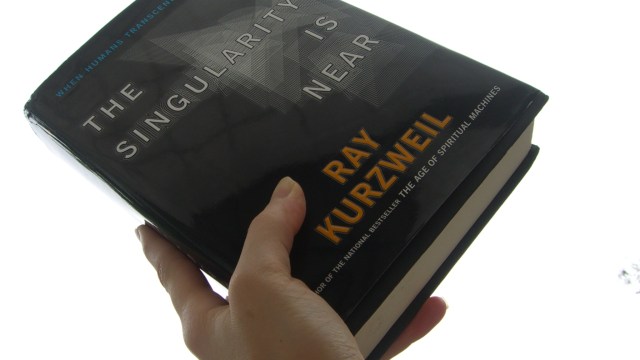Replies to the Abraham Test

My post from last week, “The Abraham Test“, provoked a vigorous discussion (225 comments and counting as of this writing) about the morality of committing violence in God’s name. Since I did, after all, pose a question to believers, it’s only fair to write a follow-up post summarizing the answers and discussing what they mean for religious morality as a whole.
For this post, I’m only going to discuss comments that directly answered the question I asked (which, I have to say, were a minority). I didn’t count the comments like, “I’ll answer this question only if you first address these ten bulleted points,” or other obvious evasions of that nature. I also omitted responses from theists along the lines of “How dare you arrogant atheists claim to be better than me,” which is telling in its own way – suggesting that they themselves recognize the moral problem with believing in a text that enshrines unquestioning loyalty to God as the highest virtue, even to the point of being willing to murder the innocent.
But enough of that; let’s get to the relevant responses. First, let’s start with the people who took my first, and most commendable option: not under any circumstances would they commit violence in God’s name.
From chas:
chas: “I would have used my judgement and said,” NO! I won’t kill my son, even if it means pain and suffering”. Wrong is wrong. PERIOD.
RayRobertson‘s answer was harder to understand: he says that he wouldn’t commit violence if God told him to, but also says that Abraham was justified in obeying God’s command to commit violence, because God owns our lives and can dispose of them as he wishes. I leave it to you, readers, to decide how the two halves of this answer can be compatible:
Would I kill my son if I felt God commanded it? Of course not!
…But then Abraham is asked to give the son back. It is a revolting act to consider cutting your son’s throat, of course. But in Abraham’s case, this son as much belonged to this all-powerful deity as Isaac belonged to Abraham. We might as well consider that Isaac had been created from dust.
And on Facebook, I got this response from Steven Unthank, which suggests he falls into this category, but doesn’t say so explicitly:
I believe that any crime committed or perpetrated in God’s name is wrong. I don’t think it’s necessary for one to be personally told by a “God” but it is enough for many people today to be told by someone who claims to be God’s representative.
Next, my second option: people who said they’d abstain from violence not because they’d find it unthinkable even if God commanded it, but merely because they’re sure God would never command it. This tack was taken by Alex:
If I thought God was telling me to commit an act of violence I would have to look at these scriptures and conclude that I’d misheard or misunderstood!
Since the scripture in question does depict God as commanding violence, I’m not sure how he arrives at that conclusion. Moving on…
And last, and most disturbing, the people who said they’d kill an innocent person if they were absolutely sure that God wanted them to. For instance, this comment from Ivesian pointed out that the Christian theologian Soren Kierkegaard took this line:
Walter Kaufmann addressed this issue in his critique of Kierkegaard, who wrote that he would sacrifice his own son if God demanded it.
Or “SirThinkALot“, who hedged his bets with something like option #2, but ultimately concluded that he’d obey:
I would be doubtful that a command to disobey Gods law came from him… Although if, all other possibilities are ruled out and I’m ABSOLUTELY certain that God was commanding me to kill someone, I probably would, although it would certainly not be ‘gleeful’ on my part…
Sgeo, a former believer, didn’t answer the question for himself but wrote that when he was Jewish, he always thought that
Abraham going through is acceptable, because that’s what [the text] says.
And lastly, Ggood also didn’t directly answer the question, but did write this supremely creepy response:
I see God as having the biggest grin on His face as He watched Abraham’s faith grow in that moment.
There’s a profound disconnect in the morality of most religious believers, and I think the Abraham test highlights that. When you press at the join, you can see exactly where it is: even though they mostly hew to the more enlightened morality of the modern age, they still worship and revere a dark-age text that treats bloody, even murderous obedience to a primitive war god’s command as the highest virtue. (I use the term “war god” advisedly, since one of the Bible’s most common titles for God is “Lord of Hosts”, or in more modern language, “Lord of Armies”). Even the theists who said they wouldn’t kill at God’s command, for the most part, don’t find the Abraham story morally revolting, although that’s the inescapable consequence of that view.
Of course, there are some people who, for all their apparent civility, did say they’d kill if they believed that God was telling them to do it. In these cases, the Abraham test serves the secondary purpose of proving that this view not only still exists, it’s more common than people realize. It’s evidence like this that atheists ought to put forward as our Exhibit A in showing that faith is far from a harmless or beneficial personality trait: it can be profoundly immoral and dangerous, which just goes to show why our rhetorical attacks on it have never been more necessary.
Image: “The Sacrifice of Isaac” by Caravaggio, via Wikimedia Commons





